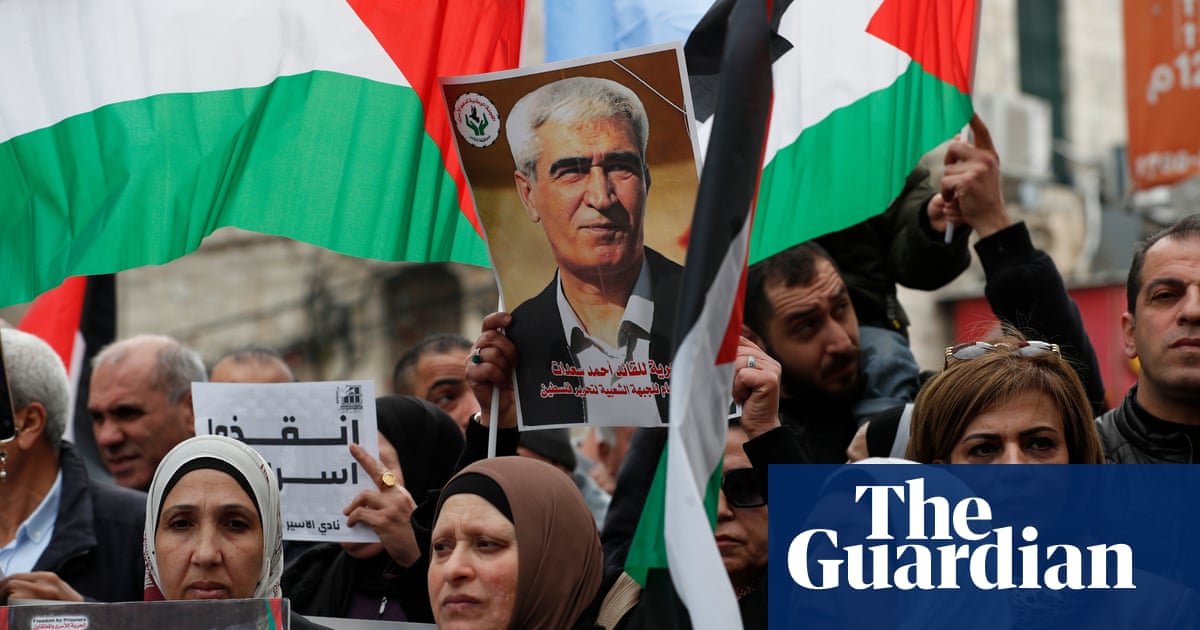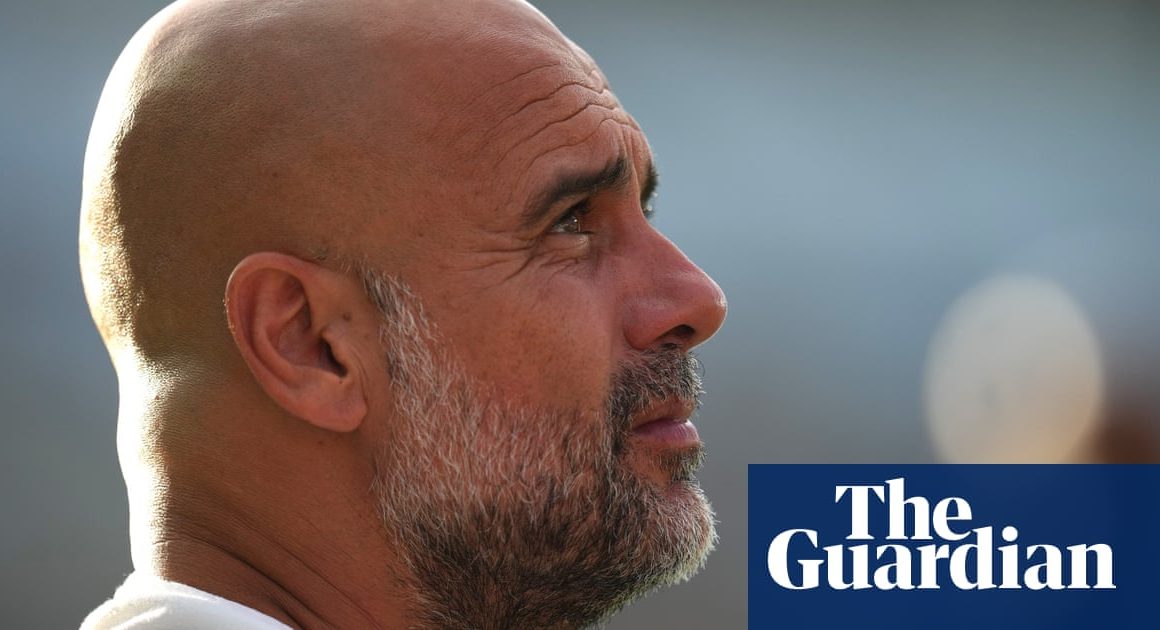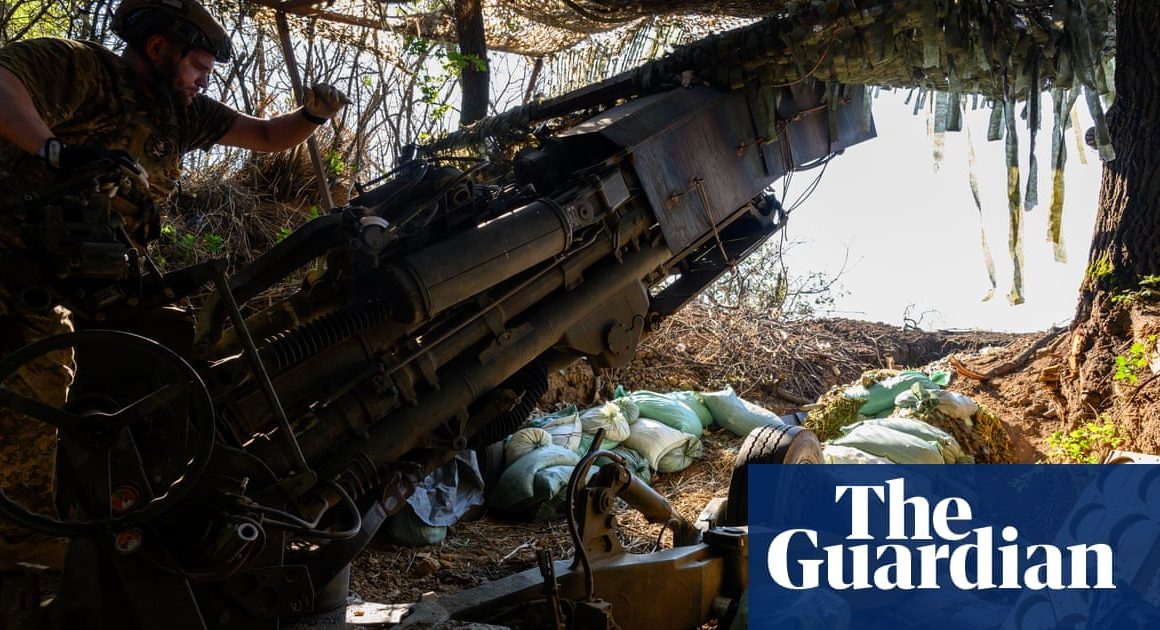In a cafe on a dusty roundabout in the small West Bank town of Silwad, men sit and play cards, one eye on the large TV screen showing the latest news from Gaza. When there is any mention of a possible ceasefire deal â and so the release of hundreds of Palestinian prisoners from Israeli jails â there is silence.
âNobody tell us anything officially. We see on the news about a deal. So we just know that my brother might be released,â said Akhram Hammad, a 45-year-old blacksmith whose sibling Tayyer is serving multiple life sentences for shooting dead seven Israeli soldiers and three civilians at a checkpoint not far from Silwad in 2002. âIt would be really good and everybody would be really happy; otherwise, he will spend the rest of his life behind bars.â
The issue of the release of Palestinians from Israeli prisons has become the linchpin of any deal that might bring even a temporary halt to the war in Gaza, analysts say.
âThe prisoners are seen as a huge rights issue for Palestinians and a major security issue for Israel. But though this is one of the most contentious issues, itâs also where we see a willingness to compromise,â said Dr Julie Norman, an associate professor of political science at University College London and the author of a book on Palestinian prisoners.
After weeks of fruitless negotiations, news came in a quick flurry on Friday with a fresh set of demands from Hamas and an announcement that an Israeli delegation would travel to Qatar to rejoin indirect talks mediated by the Gulf state.
Hamas has dropped demands for Israel to free all Palestinians held in its prisons, who number more than 9,000, according to rights campaigners. However, the militant Islamist organisation is now asking for the release of between 400 and 1,000 âordinary prisonersâ, plus 57 who have been convicted of serious crimes including multiple murders, Palestinian officials told the Guardian.
Hamas killed more than 1,200 people, mostly civilians, and abducted about 240 in an attack in Israel in October. More than 100 of those taken into Gaza were released during a short-lived ceasefire in November when 240 detainees, mostly teenage boys awaiting trial or held without charge, were freed by Israel.
Israeli officials say 134 hostages are still held in Gaza, though about 30 may be dead.
Norman described any prisoner release as âprobably the bitterest pill for Israelis to swallowâ.
âThey donât want to reward what Hamas has done, and they donât want to release people who could harm them in the future,â she said. âPart of the aims of the 7 October attack was to force a prisoner release and that is one of the most politically significant things that any such organisation can achieve.â
Hamas is willing to release women, men under 19 and over 50 years old, and ill people â a total of 40 hostages, the Palestinian officials said.
According to a leaked draft of the new proposal, Hamas wants any ceasefire to lead to a definitive end to Israelâs offensive in Gaza â which has killed more than 31,000 people, according to local health officials â but will now accept an initial 40-day pause in hostilities.
Other demands include the withdrawal of Israeli troops from Gaza, more humanitarian aid entering the territory and the return of all those displaced from the territoryâs ruined northern parts.
Qadura Fares, who heads the Palestinian Authorityâs prisoner affairs commission, based in Ramallah in the occupied West Bank, said: âHamas donât want to accept defeat at the negotiating table if they are not defeated at the battlefield.
âThe prisoners are very important because of the mentality of the Palestinians ⦠There is a tradition of solidarity with those who make sacrifices. If you gain the freedom of someone with a long sentence, you bring a dead person back to life. It creates hope.â
Of the prisoners released during the ceasefire in November, eight are back behind bars.
One is Obeida Hammad, who served 17 months of administrative detention without charge before being released, but was then rearrested by the Israeli army three weeks ago in a 4am raid on his home in Silwad.
Badriya Hammad, the 19-year-oldâs mother, said her son had not been involved in any illegal activities since his release and he had dreaded going back to prison, where he had endured harsh conditions.
âHe was very shocked. They told him to get dressed and take any medicine he needed and then put handcuffs on him and led him away. We have not heard anything since. There is no charge, so we donât know what he is supposed to have done wrong,â she said.
Tala Nasir, a lawyer with Addameer, a campaign group based in the West Bank, said rearresting released prisoners led to a problem of trust. âIsraelis are trying to put the largest possible number of Palestinians behind bars to prevent them raising their voices. They are a bargaining chip too,â she said.
Israeli authorities did not comment when approached about Hammadâs re-arrest.
Partly as a consequence of the new detentions, Hamas negotiators are demanding guarantees that any freed prisoners will not be put straight back in jail, the Palestinian officials said.
This may be hard for Israelis to concede. The 57 most serious offenders whose freedom is demanded by Hamas include the masterminds of bombings in Israel at a hotel and shopping mall that killed 65 Israelis, seen as some of the worst terrorist attacks in the country, and the planner of the assassination of an Israeli minister. Another is serving 54 life sentences for organising suicide bombings that killed 46 Israelis.
Agreeing to a deal that leads to the release of such prisoners may fracture the coalition government of Benjamin Netanyahu, Israelâs prime minister. Polls show deep opposition among Israelis to such concessions, though Netanyahu is also under pressure to obtain the freedom of the surviving hostages.
Israeli commentators have repeatedly warned of âtime running outâ for those held in Gaza, with released hostages describing harsh conditions, sexual violence and limited food.
Hamas also want the freedom of 15 prisoners whom Israel refused to release in 2011 when negotiating the release of an abducted soldier held in Gaza.
That deal led to more than 1,000 prisoners being freed by Israel, including Yahya Sinwar, the Hamas leader in Gaza and the mastermind of the militant organisationâs October attack.
Officials in Ramallah said the 15 included Marwan Barghouti, one of the most popular politicians among Palestinians, who was convicted of murder and has spent more than 20 years in prison. The 64-year-old is a member of the rival Fatah party and seen as a potential presidential candidate.
Analysts say the demand for his freedom is politically significant, suggesting Hamas want to be seen as representing all Palestinian factions and might eventually accept Barghoutiâs leadership.
Hamas would portray any prisoner release as a major victory. The organisation received a powerful boost in popularity after the deal in November, and the effect of a release of a much bigger number of prisoners, including leaders such as Barghouti, would be proportionately greater, analysts said.
âIt would be a big short-term and long-term win,â said Norman.
In Silwad, there is keen anticipation. One of the cafeâs card players, who did not want to be named, said: âThere is not a single family here that does not have someone in prison. Everyone has friends, cousins, brothers in jail. Some day, all of them will be released.â












